Cats are enigmatic creatures, often leaving their human companions guessing about their true feelings. Despite their mysterious aura, cats communicate a lot through their body language. Deciphering these cues can be like unlocking a secret language that reveals their emotions and intentions. By understanding these signals, you can build a stronger bond with your feline friend. This article delves into seven crucial body language cues that can help you better understand your cat’s hidden emotions.
The Flick of the Tail
A cat’s tail is like a mood barometer, providing vital insights into its emotional state. When a cat flicks its tail rapidly, it often indicates irritation or agitation. Imagine it as a ticking clock, each flick representing a growing impatience. On the other hand, a gently swaying tail can signify curiosity or contentment. It’s essential to observe the context in which the tail movement occurs. If your cat is watching birds outside the window with a flicking tail, it might be a mix of excitement and frustration at not being able to reach them.
Ear Position and Its Implications
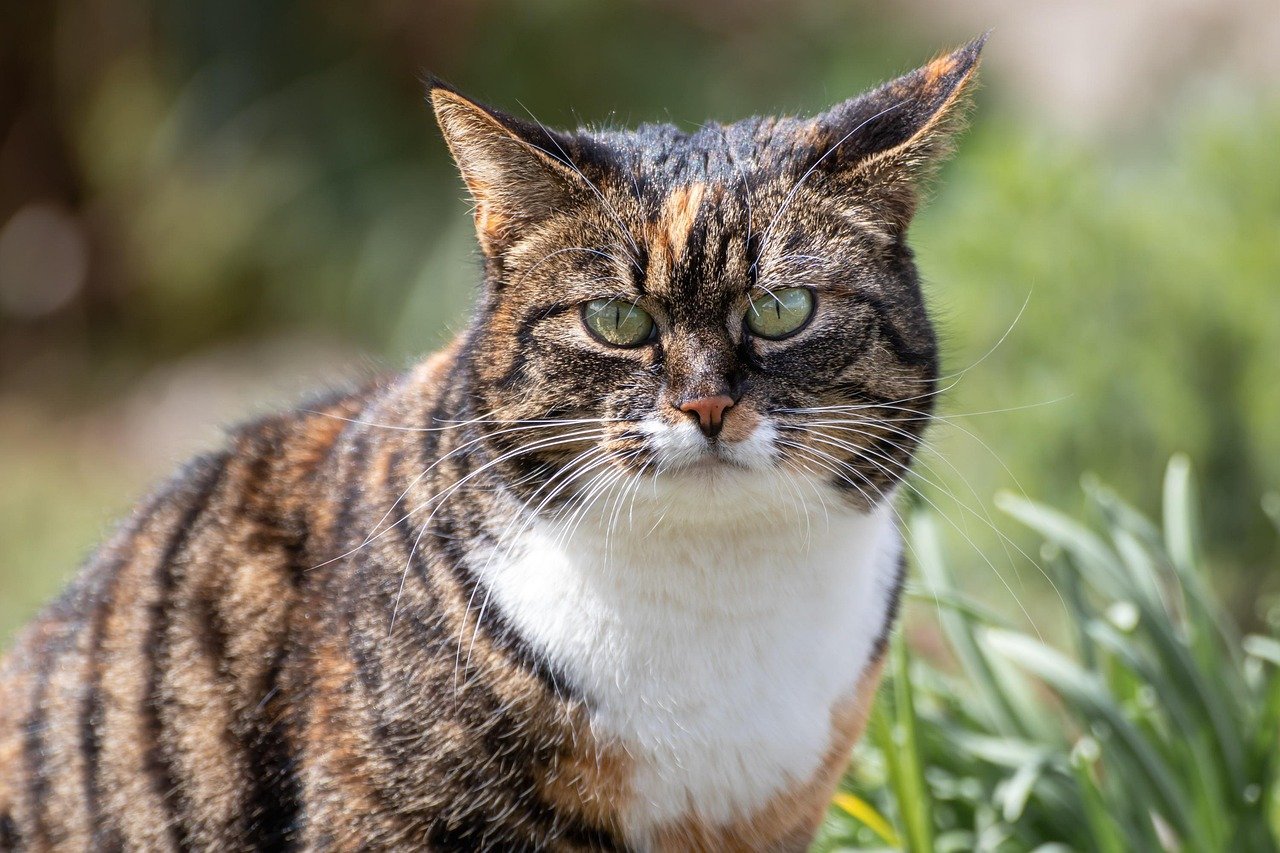
The position of a cat’s ears can tell you a lot about its mood. When a cat’s ears are upright and facing forward, it’s usually relaxed and interested in its surroundings. Picture it as a satellite dish tuned into its environment. However, if the ears are flat against the head, it often signals fear or aggression. This defensive position is a clear indication that your feline is feeling threatened. Understanding these cues can help you approach your cat appropriately, especially if it’s feeling uneasy.
Purring: More Than Just Contentment
While purring is commonly associated with a happy and content cat, it can sometimes indicate other emotions. Cats may also purr when they are in pain or feeling anxious. It’s akin to a human humming to self-soothe during stressful times. The key is to observe the context and other accompanying body language signals. If your cat is purring while hiding or after a stressful event, it might be trying to calm itself down. Always consider the full picture before interpreting a purr.
The Slow Blink: A Sign of Trust
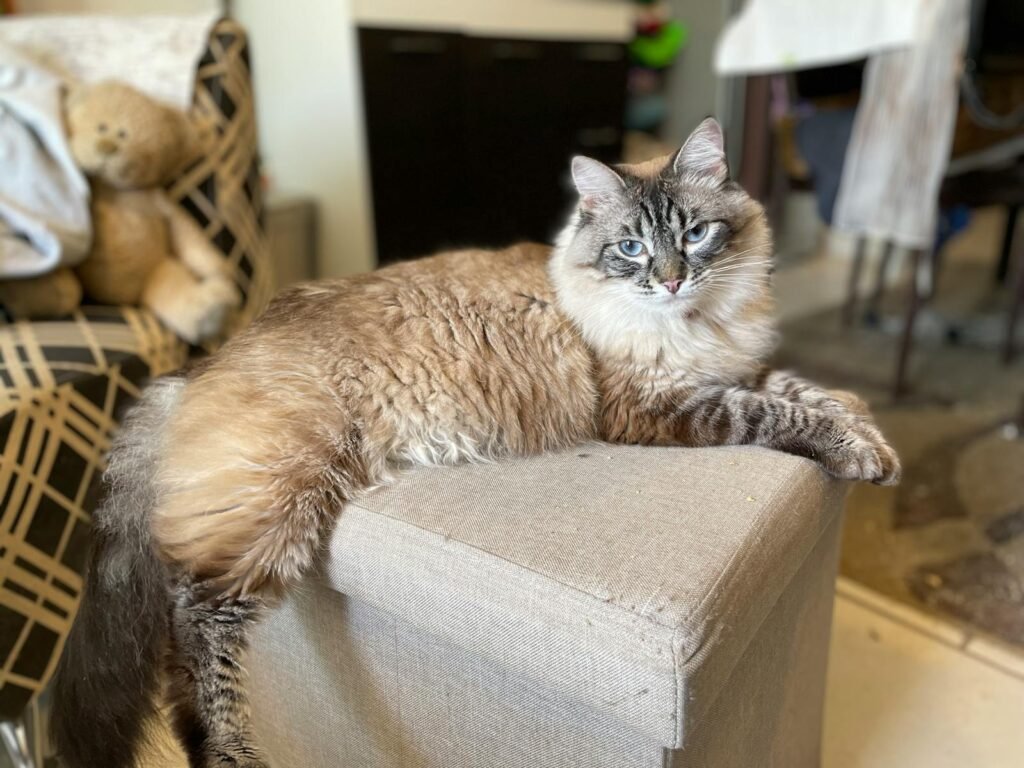
The slow blink from a cat is one of the most heartwarming gestures you can receive. It’s often seen as the feline equivalent of a kiss, conveying trust and affection. When a cat slowly closes and opens its eyes while looking at you, it’s showing that it feels safe and comfortable in your presence. You can reciprocate this gesture by slow blinking back, which can strengthen your bond. This shared moment is like a silent conversation of trust between you and your cat.
Arched Back and Puffed Tail: Defensive Posture
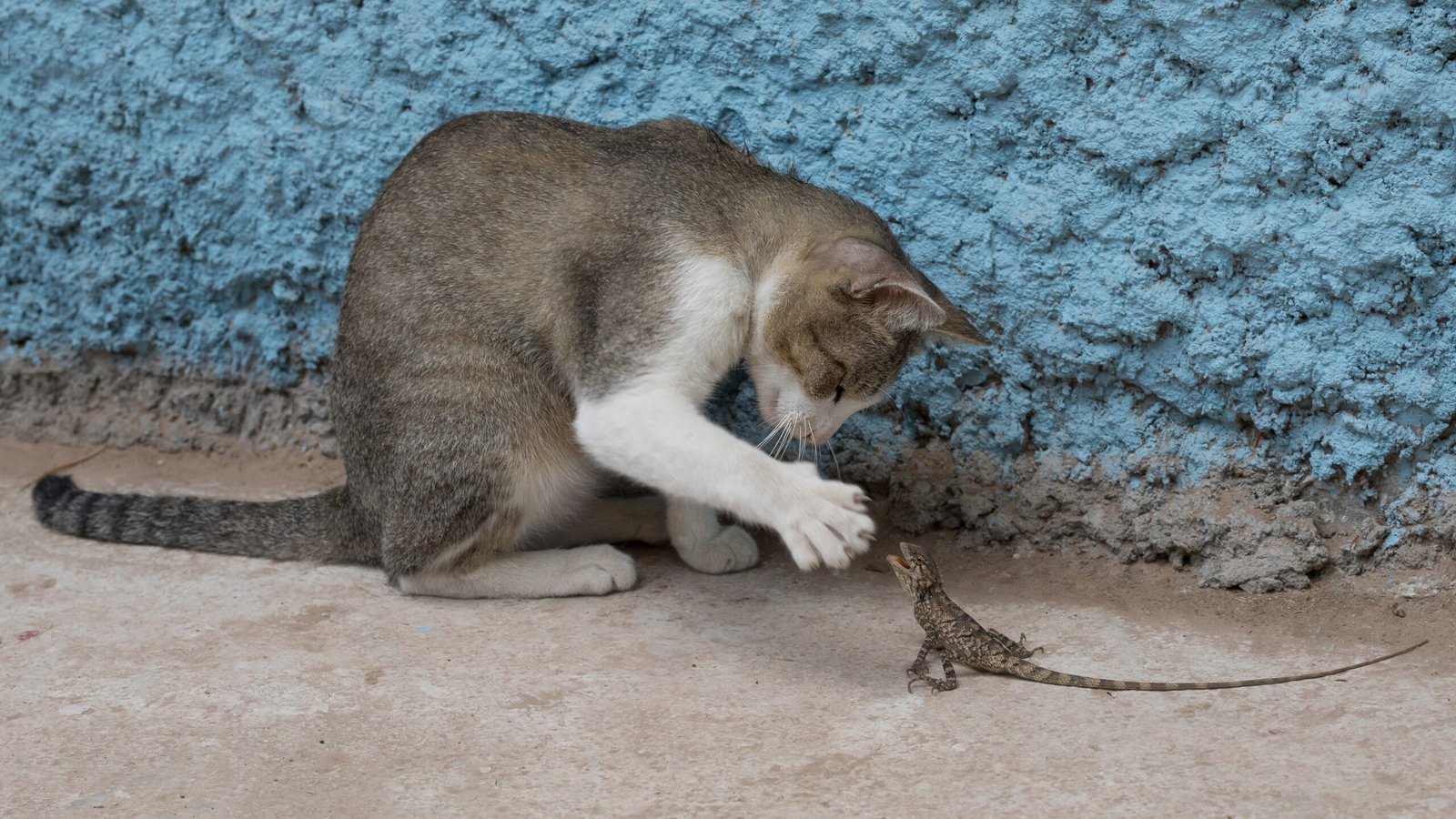
When a cat arches its back and puffs up its tail, it’s often trying to appear larger and more threatening. This posture is a defense mechanism, signaling that the cat feels threatened and is ready to defend itself if necessary. It’s comparable to a human standing tall and raising their fists in a defensive stance. If you notice this body language, it’s best to give your cat space and allow it to calm down. Approaching a cat in this state might escalate its fear or aggression.
Whisker Position: Subtle Yet Telling
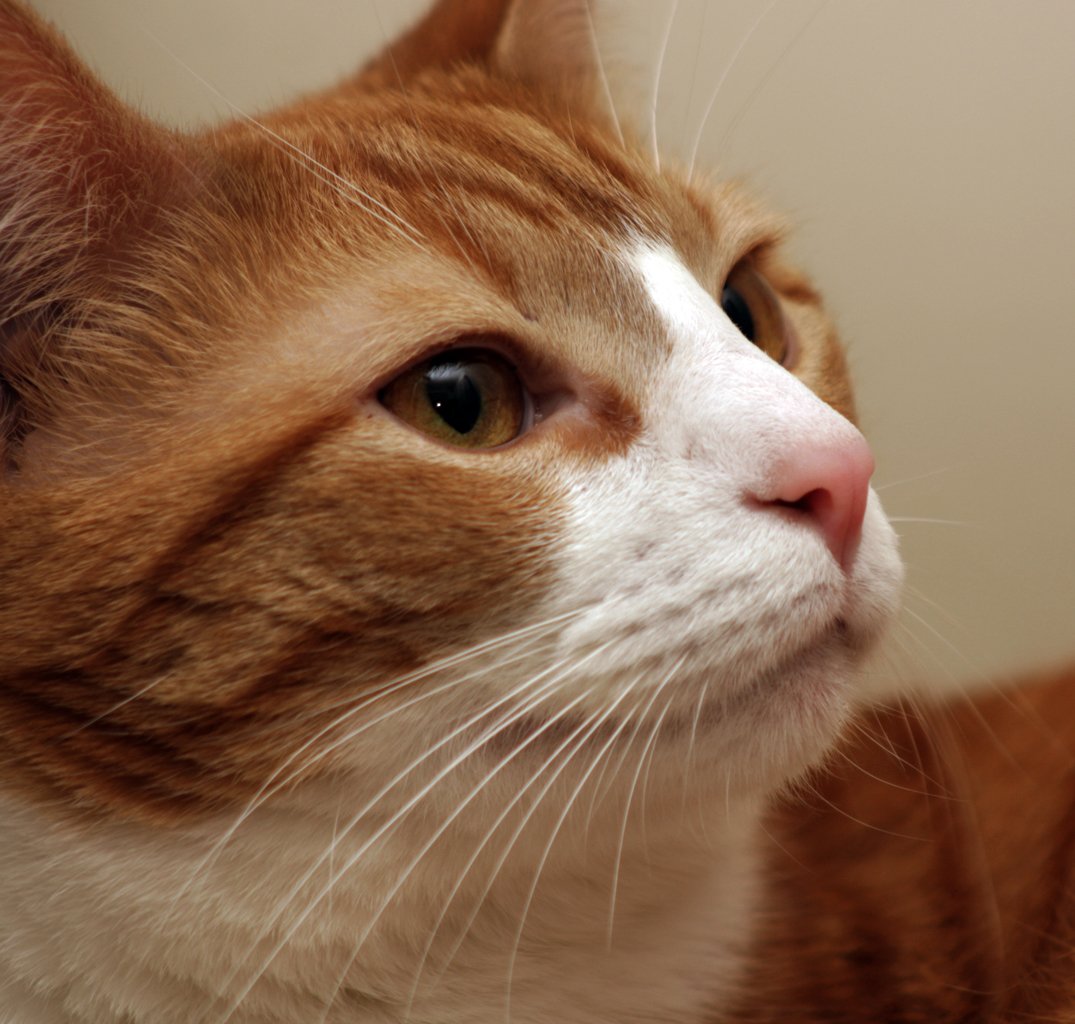
Whiskers are not just for detecting changes in the environment; they can also indicate a cat’s emotional state. When a cat’s whiskers are pushed forward, it usually means curiosity or excitement. Think of it as a person leaning in to get a better view of something intriguing. Conversely, whiskers pulled back against the face can denote fear or anxiety. By paying attention to whisker position, you can gain subtle insights into how your cat is feeling at any given moment.
Kneading: A Comforting Ritual
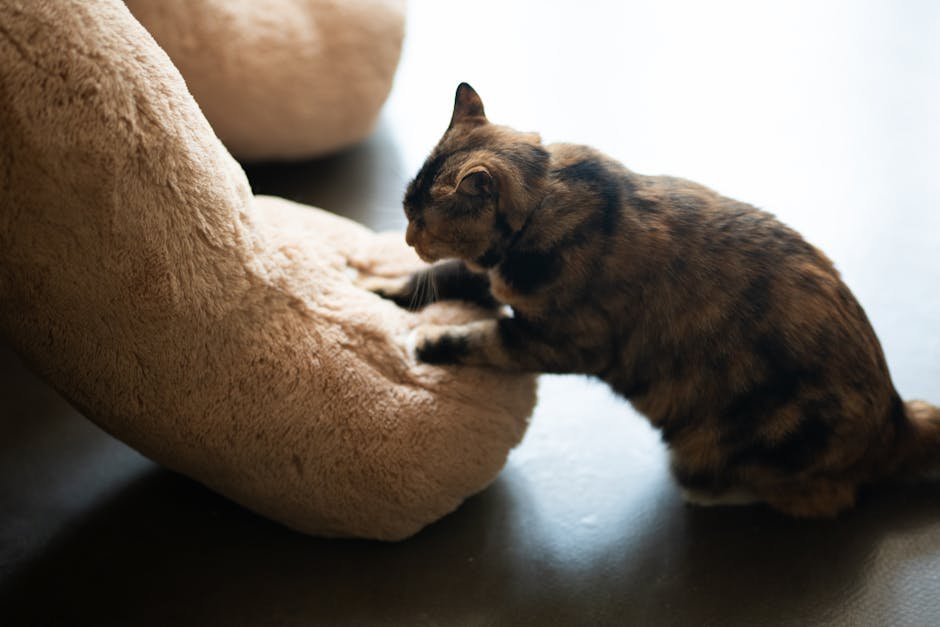
Kneading, where a cat rhythmically pushes its paws in and out against a soft surface, is often a sign of contentment and comfort. This behavior stems from kittenhood when they knead their mother’s belly to stimulate milk flow. For adult cats, kneading can be akin to a human cuddling up with a soft blanket. It’s a comforting ritual that indicates your cat feels safe and happy. If your cat kneads on you, take it as a compliment and a sign of affection.
Tail Up: A Friendly Greeting
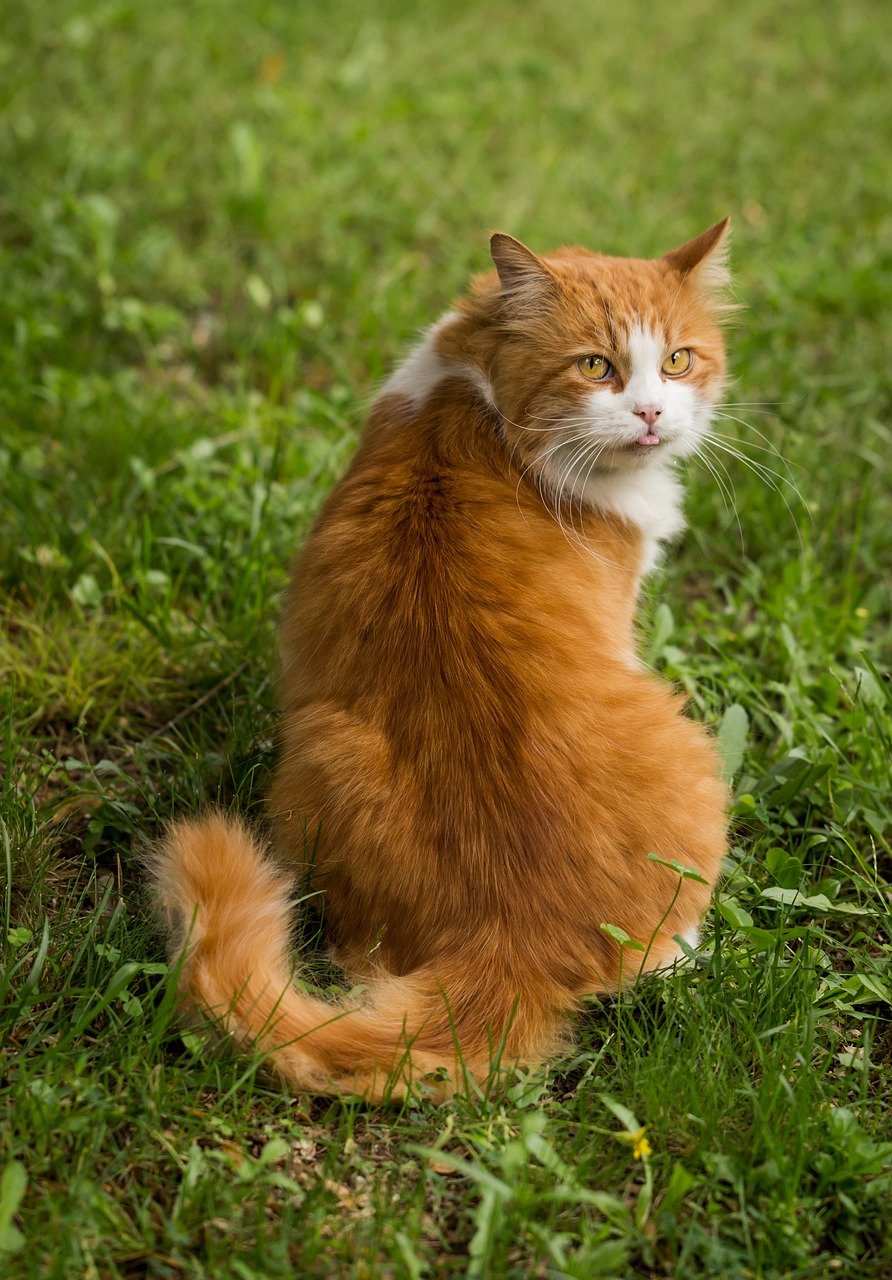
A cat approaching with its tail held high is often expressing friendliness and confidence. This posture is a welcoming gesture, akin to a human waving hello. It’s a positive sign that your cat is happy to see you or is comfortable in its environment. If the tip of the tail is slightly curved, it might indicate playful curiosity. A tail-up greeting is an invitation to interact, so feel free to engage with your cat when you see this cheerful posture.
Exposing the Belly: Vulnerability and Trust
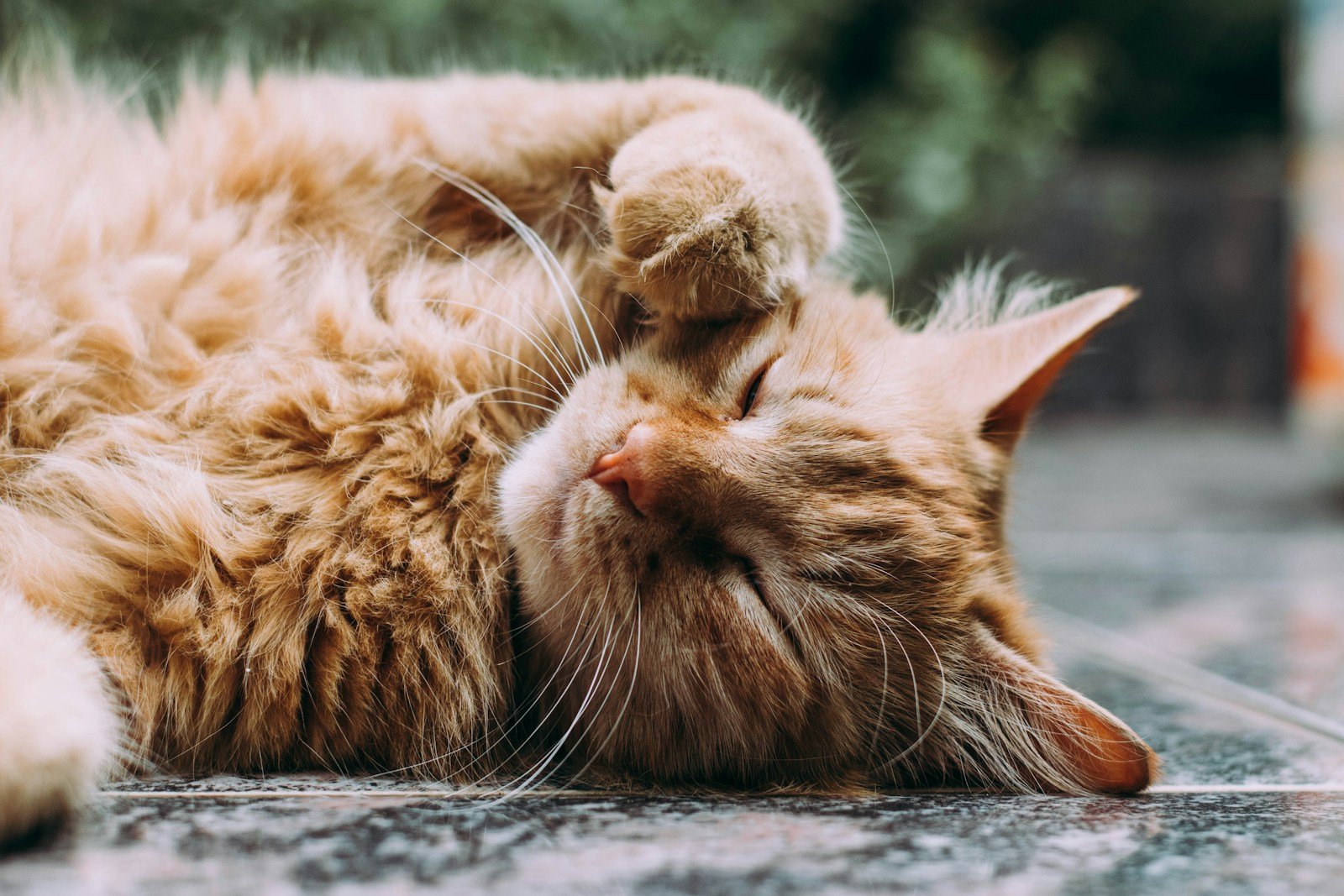
When a cat rolls over and exposes its belly, it’s showing a high level of trust. The belly is a vulnerable area, and exposing it indicates that the cat feels safe around you. However, this doesn’t always mean an invitation for a belly rub. Many cats prefer their bellies to be admired from afar rather than touched. It’s similar to a person sharing a personal secret, showing trust but not necessarily inviting further probing. Respecting this boundary can further enhance the trust between you and your cat.
Playful Pouncing: Energy and Enthusiasm
A cat crouching with its hindquarters wiggling in the air is often preparing to pounce, a behavior rooted in its predatory instincts. This playful gesture indicates energy and enthusiasm, akin to a child gearing up for a game of tag. It’s a sign that your cat is in a lively mood and may be looking to engage in play. Providing toys or interactive playtime can help channel this energy positively and strengthen your bond through shared activities.
Conclusion
Understanding your cat’s body language is like learning a new language, one that can deepen your relationship and enhance communication. These cues provide valuable insights into your cat’s emotions, helping you respond appropriately to their needs. By paying attention to these signals, you can ensure a harmonious and fulfilling companionship with your feline friend.
Hi, I’m Bola, a passionate writer and creative strategist with a knack for crafting compelling content that educates, inspires, and connects. Over the years, I’ve honed my skills across various writing fields, including content creation, copywriting, online course development, and video scriptwriting.
When I’m not at my desk, you’ll find me exploring new ideas, reading books, or brainstorming creative ways to solve challenges. I believe that words have the power to transform, and I’m here to help you leverage that power for success.
Thanks for stopping by, Keep coming to this website to checkout new articles form me. You’d always love it!






